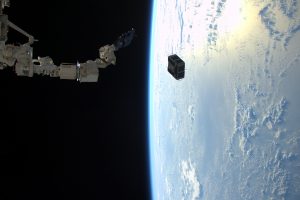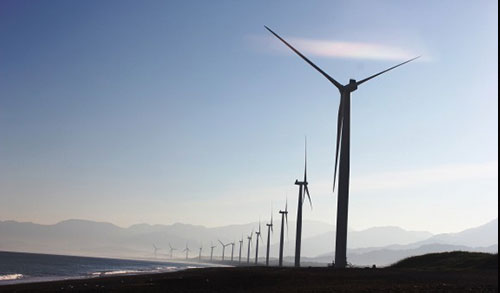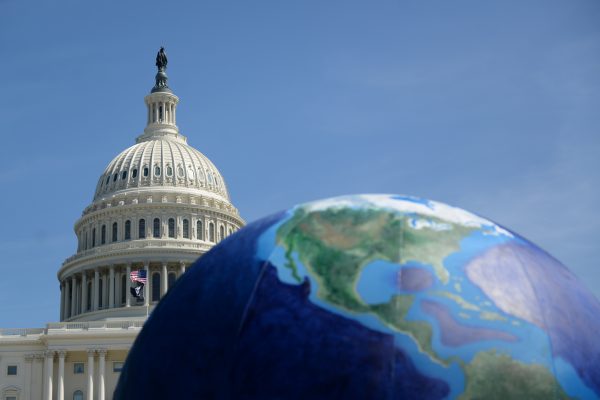Welcome to Our Research Archive
Search and filter by content type, issue area, author, and keyword
- ✕ Clear Filter
- AI (1)
- Article (4)
- Articles (971)
- book (1)
- Climate (238)
- climate change (1)
- data dashboard (14)
- electricity (3)
- energy (242)
- Events (25)
- op-ed (2)
- Podcast (3)
- Post (2)
- Puerto Rico (1)
- Report (2)
- Reports (16)
- science (80)
- science funding (10)
- science trust (10)
- technology (536)
- testimony (1)
- Working paper (1)

June 25, 2025
The Engineers at the ACLU Have Some Good Things to Say
There’s not much insight in reiterating that computer programming and technical-system design are forms of engineering. But this type of engineering sometimes has very significant implications. Much as designing bridges keeps cars and human bodies out of rivers, designing and constructing certain technical systems prevents future civic collapse. So I can readily endorse identification policy…

June 24, 2025
Is Chatbot Output Speech? A Recent Ruling Misses the Mark
When artificial intelligence chatbot characters communicate with you through words––when they respond with comments, answers, and questions to your input––are they engaging in “speech” within the meaning of the First Amendment? According to Senior US District Judge Anne Conway’s May decision in Garcia v. Character Technologies, the answer––perhaps surprisingly and certainly unfortunately––might be no. In…

June 23, 2025
How the FCC Space Bureau is Rethinking the Rules of Space
Spectrum sharing rules between geostationary (GSO) and non-geostationary (NGSO) satellites have remained largely unchanged for decades, despite major advances in satellite technology and deployment. Safeguards like equivalent power-flux density (EPFD) limits were designed before the rise of large NGSO constellations, and today’s framework reflects outdated assumptions about system design and spectrum use. The FCC’s April…

June 20, 2025
The Invisible Price Tag of Yesterday’s Regulation
Two snapshots, one static institution In 1915, Kansas City Power & Light convinced regulators that stringing copper wires across the prairie would bring “abundant, cheap light for every home”. Today, a data center developer requesting 300 MW for a new facility is instructed to join a five-year interconnection queue. While the physical infrastructure has expanded…

June 20, 2025
Why America Cannot Afford to Wait Anymore: The Need for Spectrum Auction Reauthorization
In the continuous evolution of wireless technology and telecommunications, few issues carry as much strategic importance as the allocation of spectrum. The recent announcement by the Senate Commerce Committee, regarding a comprehensive spectrum deal, represents more than just another legislative compromise—it’s a critical step toward securing America’s technological and economic future. While the proposal includes…

June 20, 2025
Smartphones and Adolescent Mental Health: The Experts’ View
Do smartphones and social media use negatively impact adolescent mental health? Psychologist Jonathan Haidt, in his high-profile work The Anxious Generation, published last year, certainly thinks so. So do policymakers across a range of jurisdictions, who have variously banned smartphones in schools (New Zealand), made it illegal for under-16s to have social media accounts (Australia), and…

June 18, 2025
Outcome in Precedent-Setting Libel Case Against OpenAI is Good Public Policy
Imagine a generative artificial intelligence (GenAI) tool such as ChatGPT produces false and defamatory content about you in response to a journalist’s query. The journalist then incorporates the same libelous statements into an article that her newspaper publishes. What are your odds of winning a libel case against the maker of the GenAI tool? They’re…

June 17, 2025
Two Cheers for the AI Moratorium!
We need to get ahead of this thing. I’ve heard this refrain countless times over the past two years in AI policy circles. But listen closely, and you’ll discover the real message underneath, a quiet admission of past failure: We didn’t move quickly enough when it came to social media and we cannot make the same…

June 16, 2025
The Most Amazing Climate Policy Figure
You’d be hard pressed to find a more fascinating straight line. The figure below is one of the most amazing graphs in all of climate policy.1 It shows the decarbonization of the U.S. economy from 1992 to 20252 — with decarbonization is defined as the ratio of carbon dioxide emissions (from fossil fuels) to GDP (in 2025$). I was…

June 16, 2025
“The Global Fertility Crisis is Worse Than You Think”
The title of today’s post comes from an excellent recent talk in London given by my AEI colleague (and University of Pennsylvania professor), Jesús Fernández-Villaverde. Today I look at the simple math of population projections to clarify the nature of the “crisis” — which is indeed worse than I thought. On X/Twitter, JFV summarized his talk as follows: The…